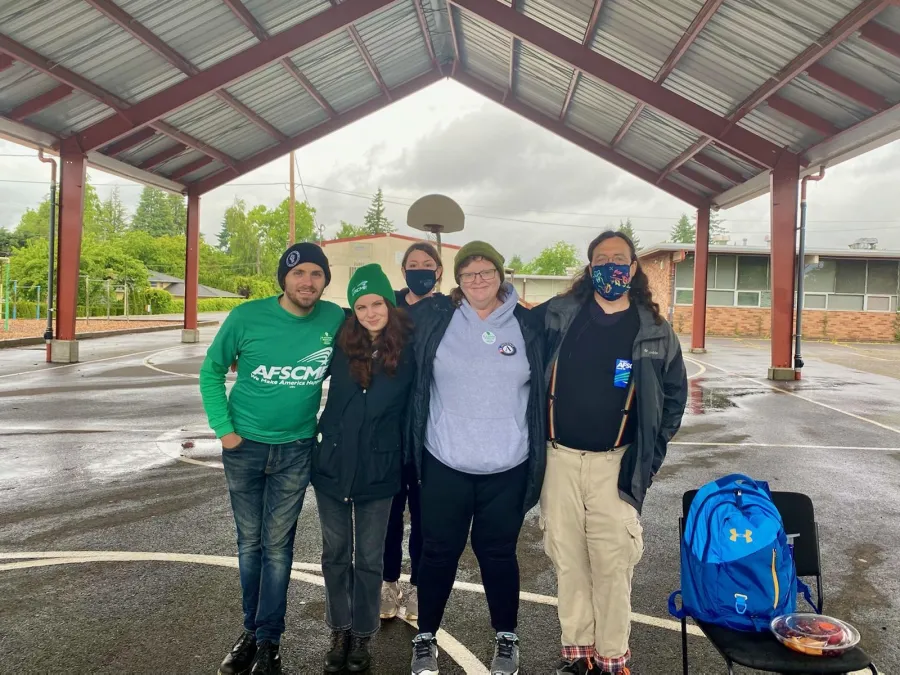AFSCME members honor Mental Health Awareness Month, reflect on changing industry

Every day, millions of Americans and their families face the reality of living with mental illness. During May, AFSCME joins the national movement to raise awareness during Mental Health Awareness Month.
AFSCME’s campaign to give behavioral health workers a voice on the job, United We Heal, supports the work of these members by advocating for policies that support people with mental illness and their families.
“Even before the pandemic, millions of Americans were experiencing stress, trauma, anxiety and heightened levels of depression,” wrote President Joe Biden in a proclamation recognizing May as National Mental Health Awareness Month. “The COVID-19 pandemic exacerbated those conditions, creating an unprecedented mental health crisis across our country.”
For CJ Alicandro, a crisis intake coordinator for Cascadia Behavioral Healthcare and a member of Oregon AFSCME Council 75, the impact of the pandemic can be seen every day on the job.
“The pandemic has really made poverty, mental health and substance use issues more visible. So we have seen a large shift towards acceptance that everyone can seek therapy when they need a little extra help,” said Alicandro. “But, at the same time, the houseless population that I work with has really struggled. The last few years have seen many lose housing, resources have been stretched thinner and folks living outside have seen a backlash from some housed neighbors.”
Alicandro said the administration’s plans to invest in the behavioral health workforce and to ensure mental health care is covered at the same level as physical health care are critical to making sure the surge in demand for services is met with an equal supply of quality care.
For Essence Welck, a mental health therapist with Cascadia and a Council 75 member, that coverage parity is already paying off for older adults with mentally complex problems whom she works with.
“The awareness was the only good thing to come from the pandemic,” said Welck.
Now she says facilities are making it more available and even promoting it to their residents.
“People are realizing how beneficial it is to get the help you need, especially after everything they went through when facilities were closed to visitors, people went weeks without any physical contact with another person and many residents died,” Welck said.
Both Alicandro and Welck see heightened awareness and acceptance of seeking mental help during the COVID-19 pandemic. But they fear that a lack of funding or availability of resources could limit mental health from becoming as central a part of people’s lives as it should be.
“Every single one of us was impacted by this pandemic in one way or another and so we need to use the Mental Health Awareness Month to keep the conversation going and to direct people to where they can find help for themselves or a loved one,” said Welck.
“The pandemic is still very much here and the impact will be felt for years,” said Alicandro. “And it is necessary for us to use every occasion we can to keep pushing. It is up to us all to use our voices to ensure accessible and quality mental health care is part of the new normal.”
